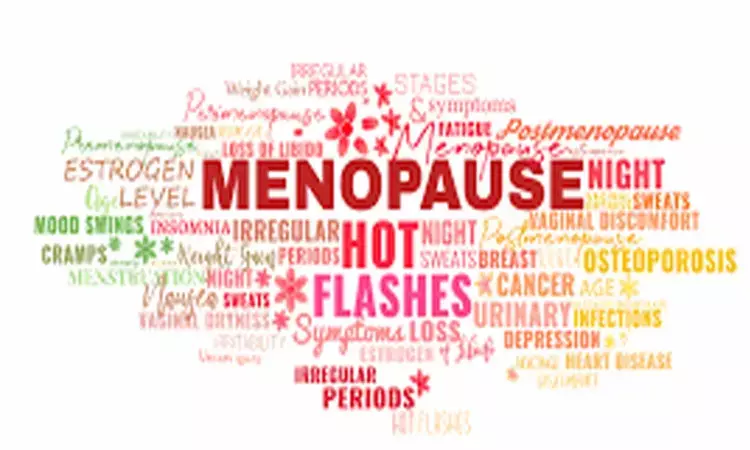- Home
- Medical news & Guidelines
- Anesthesiology
- Cardiology and CTVS
- Critical Care
- Dentistry
- Dermatology
- Diabetes and Endocrinology
- ENT
- Gastroenterology
- Medicine
- Nephrology
- Neurology
- Obstretics-Gynaecology
- Oncology
- Ophthalmology
- Orthopaedics
- Pediatrics-Neonatology
- Psychiatry
- Pulmonology
- Radiology
- Surgery
- Urology
- Laboratory Medicine
- Diet
- Nursing
- Paramedical
- Physiotherapy
- Health news
- Fact Check
- Bone Health Fact Check
- Brain Health Fact Check
- Cancer Related Fact Check
- Child Care Fact Check
- Dental and oral health fact check
- Diabetes and metabolic health fact check
- Diet and Nutrition Fact Check
- Eye and ENT Care Fact Check
- Fitness fact check
- Gut health fact check
- Heart health fact check
- Kidney health fact check
- Medical education fact check
- Men's health fact check
- Respiratory fact check
- Skin and hair care fact check
- Vaccine and Immunization fact check
- Women's health fact check
- AYUSH
- State News
- Andaman and Nicobar Islands
- Andhra Pradesh
- Arunachal Pradesh
- Assam
- Bihar
- Chandigarh
- Chattisgarh
- Dadra and Nagar Haveli
- Daman and Diu
- Delhi
- Goa
- Gujarat
- Haryana
- Himachal Pradesh
- Jammu & Kashmir
- Jharkhand
- Karnataka
- Kerala
- Ladakh
- Lakshadweep
- Madhya Pradesh
- Maharashtra
- Manipur
- Meghalaya
- Mizoram
- Nagaland
- Odisha
- Puducherry
- Punjab
- Rajasthan
- Sikkim
- Tamil Nadu
- Telangana
- Tripura
- Uttar Pradesh
- Uttrakhand
- West Bengal
- Medical Education
- Industry
Exposure to environmental chemicals linked to sleep disruption during menopause

CLEVELAND, Ohio -- According to a new study ,for menopausal women who have difficulty sleeping, it might be because of chemicals in the environment.
Researchers have found that exposure to various chemicals, such as phthalates, found in hundreds of products used daily, is associated with sleep disruptions in midlife women on the basis of data from the Midlife Women's Health Study.
Up to 60% of women in the menopause transition experience sleep difficulties. Women who have trouble falling asleep are at greater risk of developing persistent depression that can lead to worse health outcomes, may require more medical care, and increase absenteeism.
The results of the study have been published in Menopause, the journal of The North American Menopause Society (NAMS).
Earlier studies have shown that such sleep disruption is the result of decreasing hormone levels. Exposure to endocrine-disrupting chemicals (EDCs), however, is one largely unexplored area that may help to explain the increased prevalence of sleep difficulties in midlife women. Phthalates are common EDCs that are found in industrial plasticizers and chemical stabilizers. Phthalates increase the performance of everything from food packaging and clothing to cosmetics and children's toys. Personal care products, in particular, represent a major area of exposure.
Although everyone is exposed to phthalates, they appear to concentrate more in women than men. A previous study suggested that increased exposure to phthalates from personal care products significantly increased the risk of hot flashes. Other studies have demonstrated associations between phthalate exposure and the likelihood of waking up at night, as well as the risk of suffering from depression.
Since phthalates are known to modulate the hormones associated with sleep and depression, researchers in this latest study surmised that they may be directly or indirectly associated with sleep in midlife women. This study, based on data gathered from more than 760 premenopausal and perimenopausal women, suggests that the frequency of sleep disruptions is associated with urinary concentrations of phthalates. It is the first known study to document this association. The relationship, however, appears complex, because other variables, such as smoking status, have been shown to influence the effect. More research is warranted to fully understand this association, as well as the underlying mechanisms of how hormones and EDC exposure influence sleep, particularly in midlife women.
Study results appear in the article "Associations of phthalate exposure and endogenous hormones with self-reported sleep disruptions: results from the Midlife Women's Health Study."
"This study raises concerns and additional questions about a possible contribution of phthalates to sleep disturbances in premenopausal and perimenopausal women. Additional research into these endocrine-disrupting chemicals and their interactions with hormones, sleep, and mood in midlife women is needed," says Dr. Stephanie Faubion, NAMS medical director.
For further reference log on to: http://www.
Dr Kamal Kant Kohli-MBBS, DTCD- a chest specialist with more than 30 years of practice and a flair for writing clinical articles, Dr Kamal Kant Kohli joined Medical Dialogues as a Chief Editor of Medical News. Besides writing articles, as an editor, he proofreads and verifies all the medical content published on Medical Dialogues including those coming from journals, studies,medical conferences,guidelines etc. Email: drkohli@medicaldialogues.in. Contact no. 011-43720751


